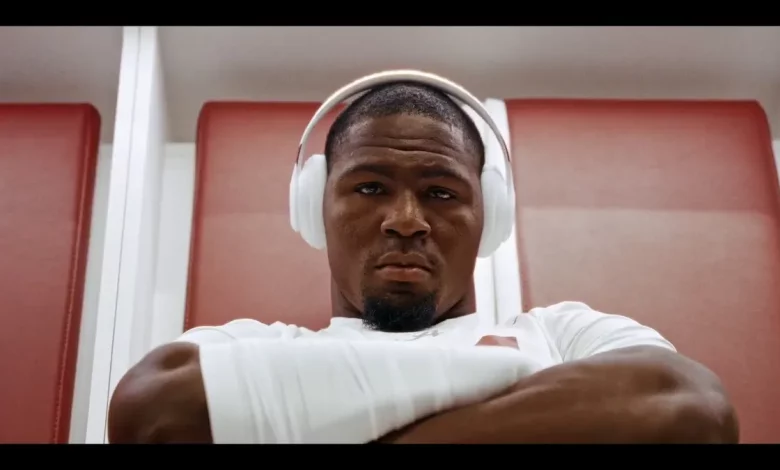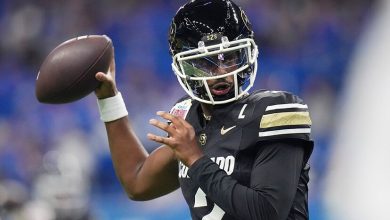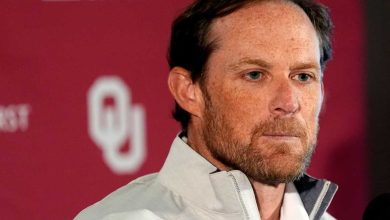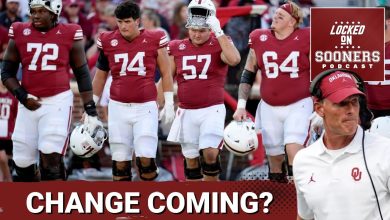A former football player from Alabama discusses how his life was altered by his second opportunity following a DUI arrest.tart.

In the world of collegiate athletics, where discipline and responsibility are heavily emphasized, the pressure to succeed can sometimes lead to unfortunate mistakes. For some athletes, those mistakes can result in life-altering consequences. Such was the case for Jeremy Williams, a former Alabama football player who found his life dramatically altered after a DUI arrest during his college years. However, instead of letting this setback define him, Jeremy chose to embrace the second chance he was given. His story is one of resilience, redemption, and the power of perseverance.
The Rise to Prominence: From Alabama to the National Spotlight
Jeremy Williams grew up in a small town in Alabama, where football was more than just a sport—it was a way of life. From a young age, he was known for his speed, agility, and impressive athleticism, which quickly earned him recognition on the high school football scene. By the time he graduated, Williams was one of the top recruits in the state, with multiple college programs vying for his commitment. Ultimately, he chose to play for Nick Saban at the University of Alabama, a program known for its tradition, excellence, and, most importantly, its discipline.
Joining Alabama’s football team was a dream come true for Jeremy. He quickly adapted to the competitive environment, earning a starting role as a wide receiver. The pride of playing for the Crimson Tide and competing in the Southeastern Conference (SEC) gave him a sense of purpose and validation. Jeremy had worked his whole life for this opportunity, and he knew that his performance on the field could one day lead him to the NFL.
During his time at Alabama, Jeremy began to garner attention from scouts, and many projected him as a potential future star. Yet, with this rise to prominence came the pressures of fame and expectations. The demands of balancing a high-level athletic career with the challenges of being a college student were becoming increasingly overwhelming. The stress of academic deadlines, athletic performance, and personal life began to take its toll.
But it wasn’t just the pressure of balancing his responsibilities that caught up with Jeremy. Like many young athletes, he was still learning about maturity, accountability, and decision-making outside of the football field. A pivotal moment that would change the course of his life came when he made a mistake that would have far-reaching consequences.
The DUI Incident: A Life-Changing Mistake
On a cold night in December of his sophomore year, Jeremy Williams made a decision that he would later describe as one of the most reckless and regrettable of his life. After a night out with friends, he got behind the wheel of his car, intoxicated and unaware of the severe consequences that could come from such an action. He was pulled over for a routine traffic stop, which turned into a life-changing moment when the officer detected alcohol on his breath.
The result was a DUI arrest, and his world came crashing down. What was once a bright future filled with opportunities now seemed clouded by his actions. In an instant, Jeremy was no longer just another promising football player at Alabama—he was a college athlete in trouble, facing the prospect of legal repercussions, academic consequences, and possibly even the end of his football career.
News of his arrest spread quickly, and the media and fans alike scrutinized his every move. The stigma of the DUI and the resulting fallout from the arrest painted him as irresponsible and reckless. But for Jeremy, the hardest part wasn’t the public backlash; it was confronting himself, realizing the weight of his mistake, and understanding the potential damage he could have caused to himself and others. It was a wake-up call, one that would force him to reconsider his actions, his values, and his future.
The Consequences: Facing Reality
The consequences of Jeremy’s DUI arrest were immediate and severe. Alabama’s head coach, Nick Saban, publicly addressed the situation, expressing disappointment but also offering a degree of understanding, acknowledging that mistakes are part of life. While Jeremy’s legal issues were one matter, his standing on the football team was in jeopardy. The University of Alabama, known for its strict policies, had a zero-tolerance policy when it came to issues of alcohol and discipline, particularly for student-athletes.
Jeremy’s initial punishment was swift and clear. He was suspended from the team for several games, which not only hurt his football career but also alienated him from his teammates and coaching staff. He was also required to attend mandatory alcohol counseling, perform community service, and undergo a series of legal proceedings. Additionally, his academic performance was scrutinized, and he found it increasingly difficult to maintain his focus on his studies while dealing with the emotional fallout of his actions.
During the weeks that followed, Jeremy was forced to confront the reality of his situation. He was no longer just a football player—he was a young man with a tarnished reputation and a future that seemed uncertain. He had been given a second chance by his coach and the university, but whether or not he would make the most of that opportunity remained to be seen.
The emotional toll of the incident weighed heavily on Jeremy. He struggled with feelings of guilt, shame, and embarrassment, knowing that he had let down not only his teammates and coaches but also his family, who had supported him through his journey. At times, he wondered if he would ever regain the trust of those around him, let alone return to the football field. The road to redemption seemed long and uncertain.
The Turning Point: A Decision to Change
It was during the darkest period of his life that Jeremy had an epiphany. He realized that he could not change the past, but he could control what came next. The DUI arrest had been a wake-up call, and it was up to him to decide whether he would let this moment define him or if he would rise above it. This realization marked the beginning of his journey toward redemption.
Jeremy made a commitment to himself: he would not let this mistake be the end of his story. Instead, he would use the experience as fuel to improve himself both on and off the field. He sought out help from mentors, teammates, and counselors, determined to understand the root causes of his actions and work to address them. The counseling sessions helped him realize that his sense of identity and worth had been too wrapped up in his football career and the expectations of others. He needed to learn how to be accountable for his actions, take ownership of his decisions, and grow as a person.
One of the biggest challenges Jeremy faced during this period was rebuilding the trust of those around him. His relationship with Coach Saban, while strained initially, began to heal as he showed a genuine commitment to changing his behavior. The rigorous counseling sessions and community service work became an important part of his daily routine, and he began to see his life from a new perspective. It was no longer just about football—it was about becoming a better person.
The Second Chance: Returning to the Field
Jeremy’s second opportunity came when Coach Saban, impressed with his transformation, offered him a chance to return to the team. He was reinstated, but it wasn’t just a simple return to football. Jeremy had earned his place back through hard work, self-reflection, and personal growth. The decision to allow him to rejoin the team was not just about football; it was a recognition of his growth as a young man who had learned from his mistakes.
When Jeremy returned to the field, he did so with a renewed sense of purpose. He no longer took the game for granted or viewed it solely as a means to a professional career. Football was now a privilege—a gift that he was determined to make the most of. As he worked his way back into the starting lineup, his performance on the field reflected his newfound maturity and focus.
His journey to redemption didn’t end with his return to the field, though. Jeremy became an advocate for responsible decision-making, sharing his story with younger players and those in the community. He spoke at events, helped organize programs to raise awareness about the dangers of drinking and driving, and used his platform to make a positive impact. In many ways, he had become the person that others could look to for guidance, someone who had overcome adversity and learned valuable life lessons along the way.
Life After Football: The Ripple Effect
Jeremy eventually graduated from Alabama, earning his degree in sports management. While his professional football dreams didn’t come to fruition, his experiences and lessons learned on and off the field shaped the course of his life. He went on to become a coach for high school athletes, using his story to teach young players about the importance of responsibility, decision-making, and personal integrity.
His journey also had a profound impact on his family, friends, and teammates. What began as a mistake that could have derailed his future ultimately became the foundation for a life filled with purpose, impact, and redemption. Jeremy’s story is a reminder that while mistakes are inevitable, they don’t have to define us. What truly matters is how we choose to rise from them, learn from them, and ultimately use them to build a better future.
For Jeremy Williams, his second chance wasn’t just about salvaging a football career—it was about reclaiming his life. His story is a testament to the power of redemption, the importance of second chances, and the strength it takes to learn from one’s mistakes and move forward with a renewed sense of purpose.









